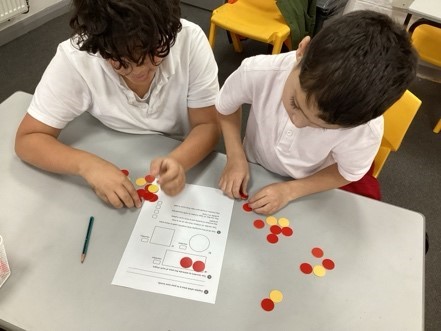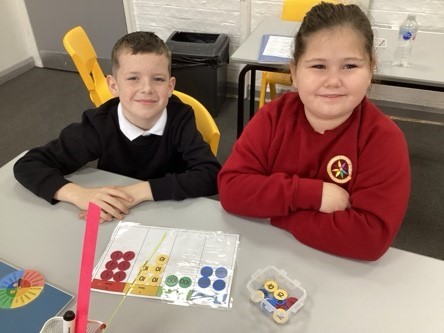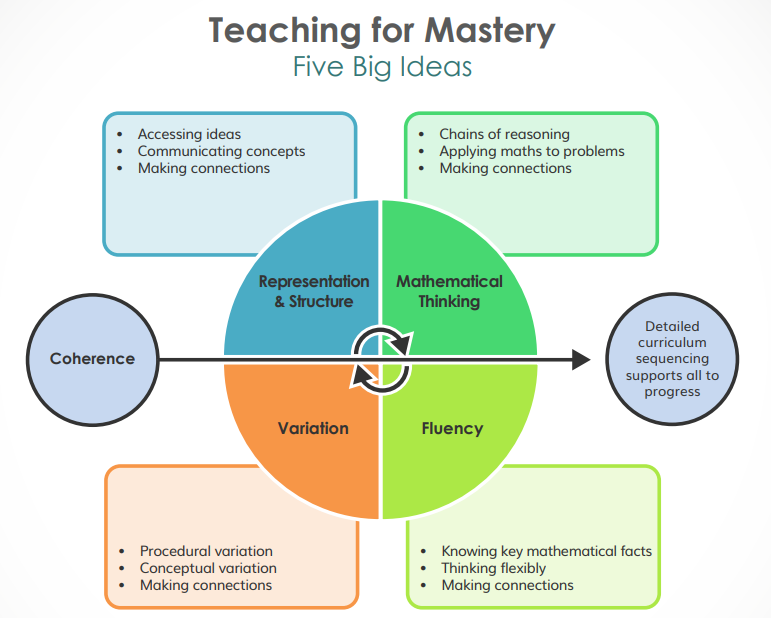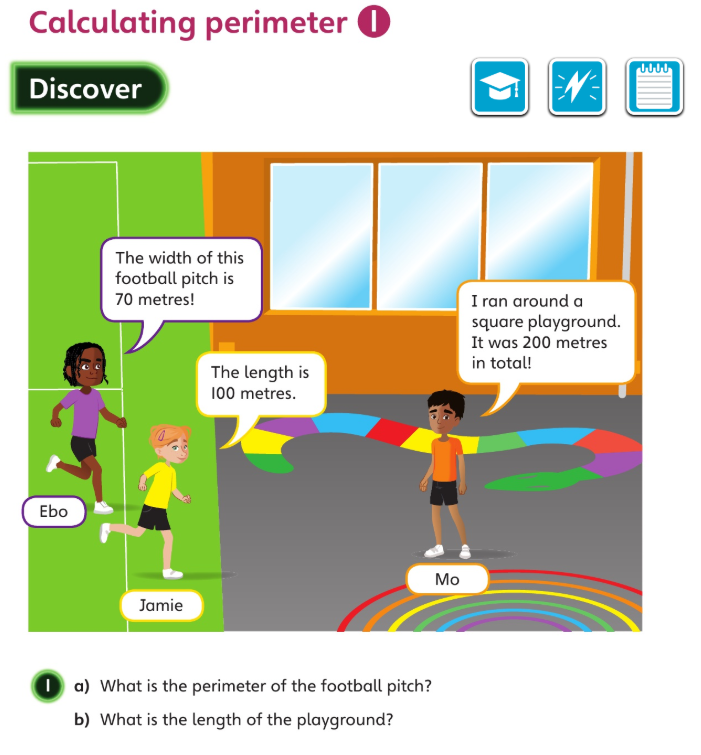Mathematics
At Rotherfield, we firmly believe that every child has the potential to succeed in mathematics. Our vision is to nurture confident, curious, and enthusiastic mathematicians who understand the relevance of maths in everyday life. We foster a positive mindset towards maths, encouraging children to explore, question, and enjoy the subject.
To achieve this, we follow a mastery approach to mathematics that breaks learning into small, manageable steps, ensuring deep understanding and sustained progress for all learners.


Our Intent
Our aim is to develop:
-
Fluent, confident mathematicians with strong procedural and conceptual understanding;
-
Critical thinkers who can reason mathematically, justify their thinking, and solve a range of problems;
-
Lifelong learners who recognise the importance of maths in the wider world.
We provide a high-quality curriculum that is:
-
Adaptive to the needs of all learners;
-
Rich and balanced, promoting both depth and breadth of knowledge;
-
Progressive, ensuring consistent development through each strand of the curriculum.
We are committed to ensuring all children can access and enjoy mathematical learning, through structured support, challenge, and the use of precise mathematical language.
Implementation: How We Teach Maths
Our maths curriculum is underpinned by the NCETM’s Five Big Ideas of Mastery: Coherence, Representation and Structure, Mathematical Thinking, Fluency, and Variation.

Teaching is designed to ensure all pupils develop a secure understanding of concepts through a blend of:
-
Carefully structured lessons, resources, and questioning;
-
The CPA (Concrete, Pictorial, Abstract) approach, which helps children make meaningful connections between methods and representations;
-
Targeted support and challenge, including guided groups and extension tasks;
-
Frequent practice and consolidation, ensuring fluency and flexibility.
We use Power Maths, a DfE-recommended scheme, to support our planning and teaching. Power Maths provides a consistent structure, aligned with our mastery approach, and encourages active engagement, reasoning, and problem-solving.

A Typical Maths Lesson
Each lesson includes the following components:
-
Discover: Children engage with a problem or puzzle to spark curiosity and activate prior knowledge.
-
Share: Pupils discuss and compare methods, using representations to explain their thinking.
-
Think Together: Guided practice allows pupils to deepen their understanding collaboratively.
-
Practice: Independent tasks challenge children to apply what they’ve learned across different contexts.
-
Reflect: Pupils consider what they’ve learned and how they approached the problem.
Supporting Fluency
In addition to daily maths lessons, we dedicate time to developing fluency in number through two programmes:
-
Mastering Number (EYFS & Key Stage 1): A daily programme that builds strong number sense and confidence with number facts.
-
Number Sense Maths (Key Stage 2): Focused on multiplication and division fluency, this programme develops automaticity and deep understanding of relationships between numbers.
Curriculum Structure
We follow a blocked curriculum, meaning each key mathematical concept is taught in depth before moving on to the next. This allows children to:
-
Secure understanding of key ideas;
-
Build confidence gradually;
-
Apply learning across a range of contexts.
Pedagogy and Teaching Principles
High-quality teaching is central to our approach. Our pedagogy is informed by:
-
Rosenshine’s Principles of Instruction, including guided practice, regular review, and scaffolding;
-
A focus on talk-rich lessons, where children articulate their thinking and learn from one another;
-
Frequent assessment, used to adapt teaching and identify gaps swiftly.
We believe that all children can achieve in mathematics and promote a growth mindset throughout the curriculum.
Our Calculation Policies
We have clear, progressive calculation policies tailored to each key stage. These are available to download:
How Parents Can Support at Home
Parental support plays a vital role in children’s success in mathematics. Here are a few ways parents can help:
1. Build Confidence:
-
Talk positively about maths, even if you found it difficult yourself.
-
Praise effort and perseverance as much as correct answers.
2. Practice Together:
-
Regularly practise number bonds, times tables, and mental arithmetic at home.
-
Use everyday opportunities such as cooking, shopping, or travel to explore maths together.
3. Use Online Tools:
-
Engage with platforms like Times Tables Rock Stars, BBC Bitesize, or Hit the Button.
4. Read the Calculation Policy:
-
Familiarise yourself with the methods we use so you can support your child consistently.
5. Talk About Maths:
-
Explore maths in everyday life, eg. time, money and measurement.
-
Ask your child to explain how they solved a problem.
If you ever feel unsure, don’t hesitate to speak to your child’s class teacher—we are always happy to help.
